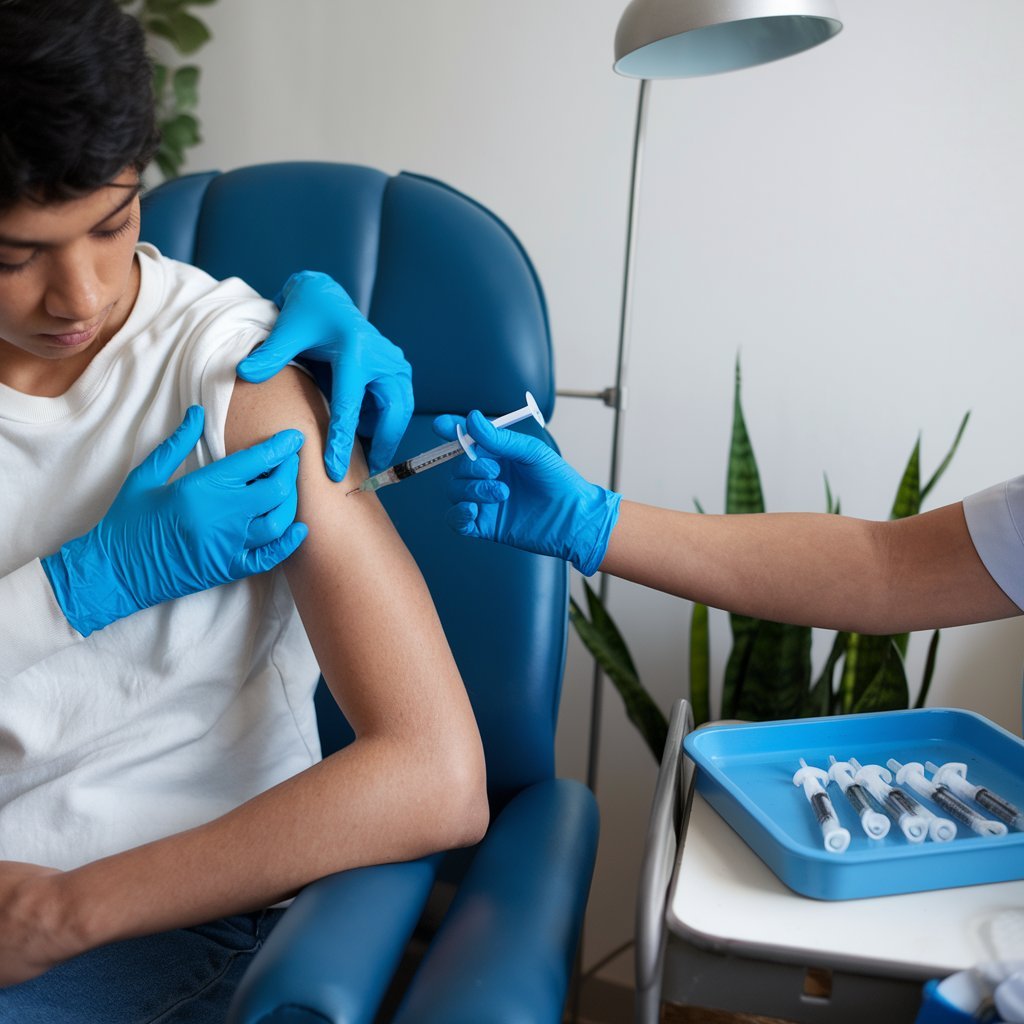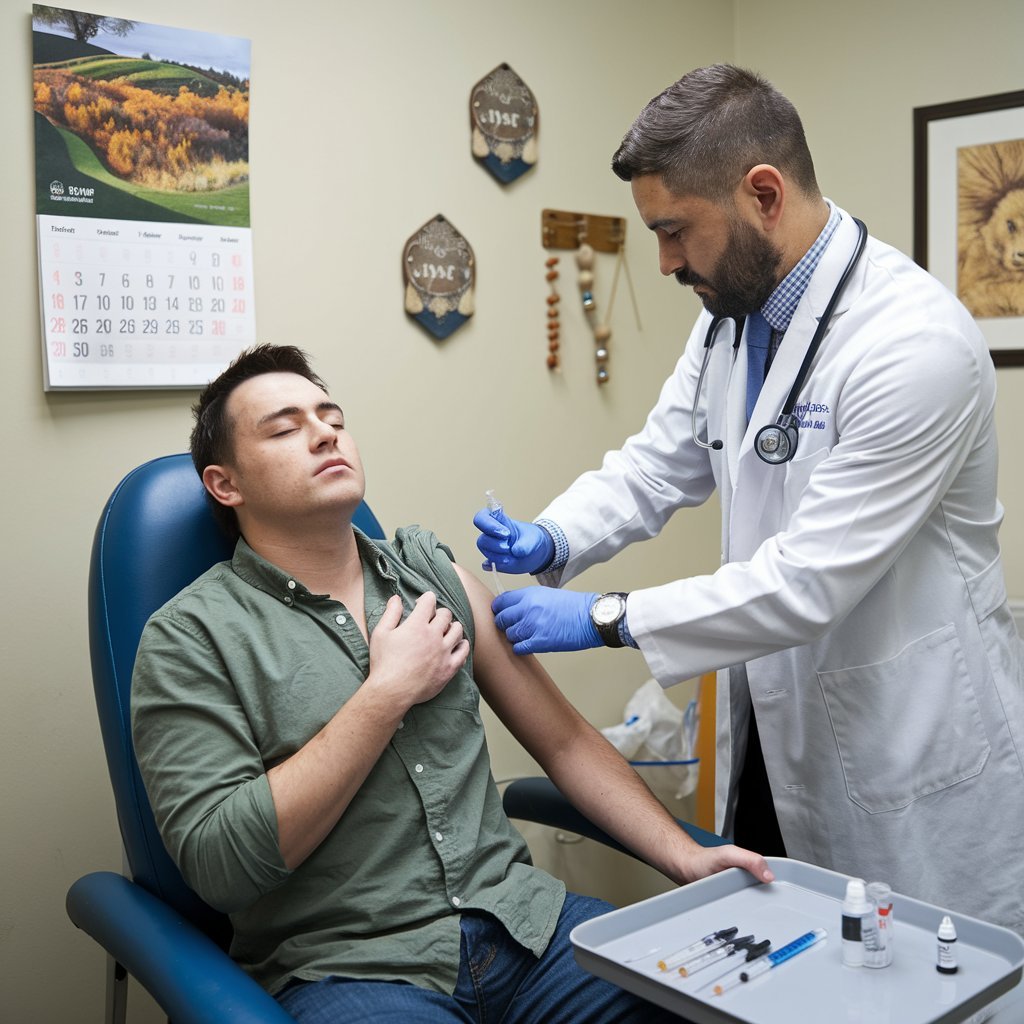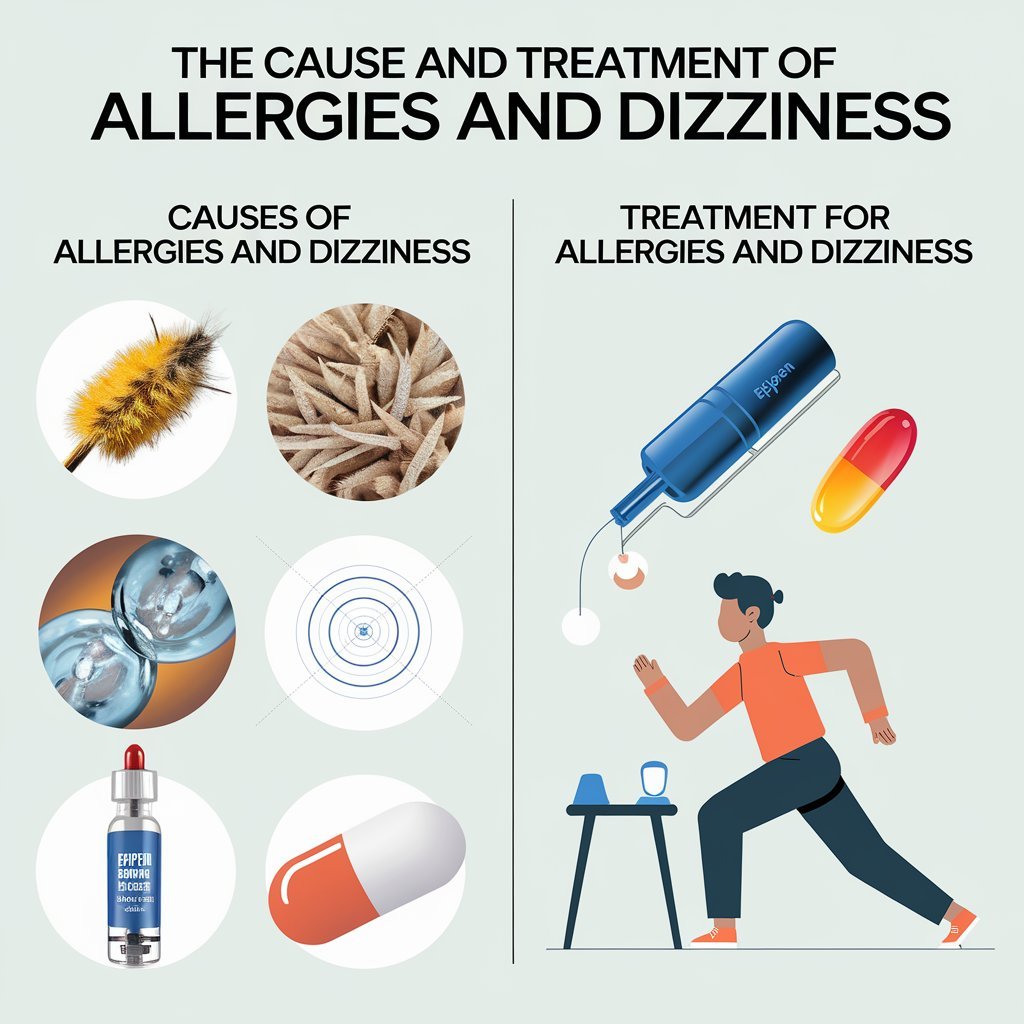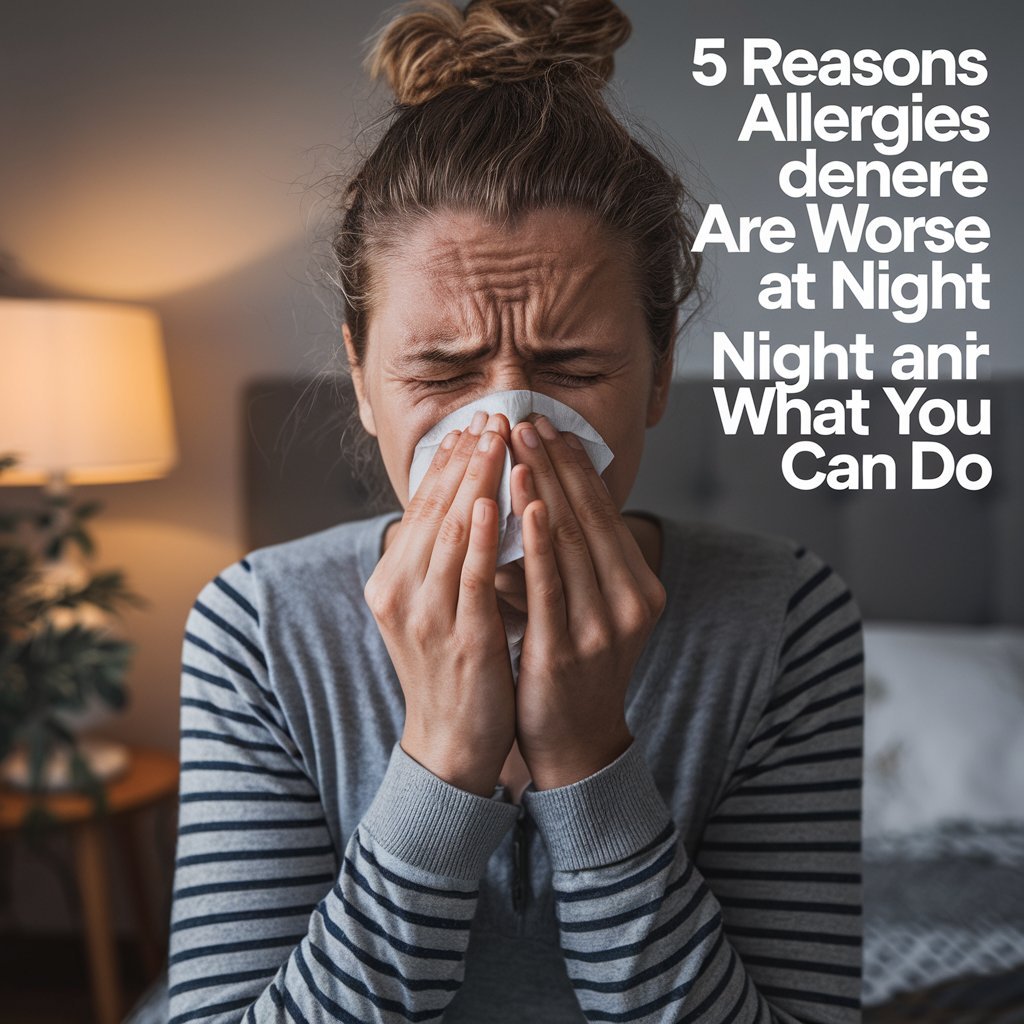Seasonal and year-round allergies can really take the joy out of life. For some kinds of allergies, however, allergen immunotherapy-allergy shots-can be a huge relief. How do allergy shots work? You’re injected with tiny amounts of whatever it is you are allergic to. Gradually, over time, the amount of allergen in each injection is increased so that your body builds up a tolerance.
Allergy shots can be very time-consuming and labor-intensive. However, the benefits can be life-changing and long-lasting for people of all ages. If you are considering using allergy immunotherapy, read on to learn about if allergy shots work.
How to Prepare
If you are interested in allergen immunotherapy, talk with an allergist about whether the treatment plan is suitable for your case. You will also need to know the specific triggers of your allergies before starting allergy shots.

An allergist can confirm what allergens cause you problems. They may use skin testing or blood tests to determine your triggers. Except for food allergens, the confirmed allergens will be the only ones included in your allergy shots.
People Who Are Eligible
Allergy shots are helpful for those suffering from seasonal allergies. They also work well for year-round indoor allergies such as mold, dust mites, and animal dander, and for insect sting allergies.
Allergy shots are a good choice for people who cannot avoid things they are allergic to, such as a pet or the outdoors. Healthcare providers will still recommend oral antihistamines, nasal steroids, and traditional therapies in addition to allergy shots.
People Who Are Not Eligible
You would need to talk with a specialist who deals with allergies about whether you’re a candidate for allergy shots. If you have a food allergy, this is not an option. Instead you would best avoid being around the trigger food or foods.
Allergies shots are accessible to most adults and children as long as they can voice their symptoms for an allergic reaction. However, a healthcare provider may advise against them if you or your child have severe, uncontrolled asthma.

This forms the maintenance phase of allergy shots, and people can continue their treatment during pregnancy. Experts discourage the initiation of allergy shots for the first time as well as an increase in the amount of allergy shots taken during pregnancy.
Those who have a history of heart issues, such as a recent heart attack, also should not take allergy shots. Allergen immunotherapy raises the mortality chances if an individual has an allergic reaction to the immunotherapy injection.
Certain drugs, such as beta-blockers or angiotensin-converting enzyme (ACE) inhibitors, may diminish the efficacy of epinephrine, a life-saving drug used to treat anaphylactic shock.6 Other drugs, such as glucagon, can be administered in conjunction with epinephrine to counteract the effects of beta-blocker medications.
Anaphylaxis is a severe immune reaction to something foreign in the body, for example, low blood pressure or blockage of the airway. This is extremely rare but serious potential side effect of allergy shots. People on beta-blockers or ACE inhibitors may not be a candidate for allergy shots.
How Long Do Allergy Shots Take to Work?
Shots are given over two phases. You will receive them once or twice a week for three to six months in the “build-up” phase. Then, you will proceed into the “maintenance” phase and receive fewer shots, approximately once or twice a month, for several years.3 Adhering strictly to such a schedule will be vital for the shots’ success and minimize your chance of having a severe reaction.
The shots themselves don’t take long to get. In case of any reactions, it is advisable to wait for 30 minutes at the allergist’s office after each one
Potential Advantages
You may get the allergy shots, and you will find relief from allergies or other health conditions.
Various Ways of Relief
Allergy shots may bring you relief in the long term. This treatment leads to building up of a tolerance by the immune system towards allergens instead of having a bad reaction. Allergy shots can reduce allergies to such low levels that medication is no longer needed, but people normally do receive these shots in addition to other treatments.
Possible Improvement With Other Health Conditions
Allergy shots can improve symptoms such as itchy eyes, a stuffy nose, or a runny nose. This treatment also improves related conditions.
For instance, getting your allergies under control when you have asthma may reduce the frequency of attacks, improve your breathing, and reduce your requirements for medications. Eczema is an inflammatory skin condition which is often accompanied by and may be exacerbated by environmental allergies.
Relief is not a quick process
Allergy shots aren’t a cure-all solution. Some individuals begin to notice an improvement while they are still undergoing the build-up phase of treatment, while others may never really feel significantly different until their maintenance phase begins. Some evidence has shown that it takes three years for allergy shots for hay fever to become more effective than a placebo shot.

Most allergy shots enter a maintenance phase, lasting anywhere from three to five years. Some are very long-lived; others must continue with further treatment.
Allergic reactions can occur
Allergens are involved, so reactions to the shots themselves are possible. These can range from swelling and itching at the injection site (usually the arm) to sneezing and a runny nose to anaphylactic shock in rare cases.
So you should remain at a healthcare provider’s office after every shot, whether you have just started or not. They can evaluate and treat the reaction if a reaction happens to you.
What Can Help You When You Get Allergy Shots?
Taking an oral antihistamine before each shot can decrease side effects and reactions, mainly at the point where your shot is administered. Antihistamines will ward off most, but not all, reactions. Pre-treating with antihistamines means a person’s chance of encountering anaphylaxis won’t be halted at the end
Other Options
Sublingual (under the tongue) therapy (SLIT) may be another option for people who dislike shots or can’t keep up with an allergy shot schedule. This immunotherapy is delivered in daily tablets that dissolve under the tongue.
- Dust mites (Odactra, for people aged 18 to 65)
- Grass pollen (Oralair, for people aged 10 to 65)
- Short ragweed pollen (Ragwitek, for people aged 5 to 65)
- Timothy grass pollen (Grastek, for people aged 5 to 65)
Liquid drops under the tongue are given by some allergy practices to treat other types of allergies. The FDA has not approved these treatments.
A Quick Review
Allergen immunotherapy, also known as allergy shots, is a long-term treatment that will provide relief from most environmental allergies. Not everyone is advised to take allergy shots, and there are both benefits and risks involved. The shots themselves don’t take much time to administer, but the time it takes to see an improvement in your allergy symptoms may take months or years.




